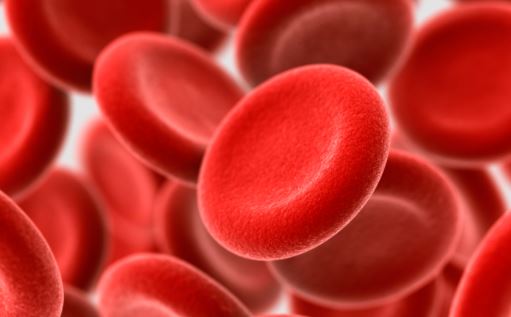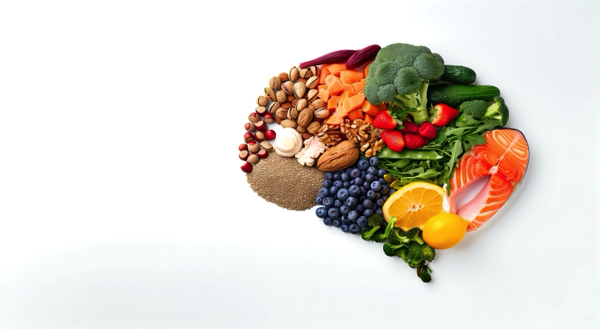The everyday guide to a healthy metabolism – no fads, just smart habits that work
08/04/2025 / By Olivia Cook

- Metabolism is your body’s energy engine, responsible for converting food into fuel to power essential functions like breathing, thinking, movement and healing.
- Certain foods can support a healthier metabolism, especially those rich in antioxidants, fiber, healthy fats and protein, such as berries, fermented foods, leafy greens, lean meats, legumes, nuts and whole grains.
- Everyday habits, such as hydration, quality sleep, physical activity, strength training and stress management, play a major role in keeping your metabolism functioning efficiently.
- Building and maintaining muscle is important because muscle tissue burns more calories at rest than fat and helps sustain a higher metabolic rate.
- Hydration and rest (consistent quality sleep) support metabolic processes, including digestion, energy production and hormone regulation, throughout the day.
Metabolism isn’t just about burning calories. It is about how your body functions at the most fundamental level. And understanding it can completely change how you approach your health. With a few smart food and lifestyle choices, you can support your metabolism and naturally boost your energy, mood, immunity and more.
Metabolism is your body’s engine. It’s the behind-the-scenes process that converts the food and drink you consume into energy that powers everything, including breathing, digestion, healing, movement, thinking and sleep.
When your metabolism runs efficiently, you feel balanced, energized and resilient. When it is sluggish, you might experience brain fog, fatigue, weight fluctuations or even hormonal imbalances. Over time, poor metabolic health can contribute to more serious issues like insulin resistance or chronic inflammation.
Metabolism on a plate: Foods that fuel better function
The right foods supply the nutrients your cells need to produce energy, reduce inflammation, regulate hormones and support metabolic balance. Research consistently points to nutrient-dense whole foods – those rich in fiber, vitamins, minerals and beneficial compounds – as key players in supporting metabolic health.
Here are some of the most effective, everyday foods to boost your metabolism, according to science:
- Lean proteins: Sources like chicken, eggs, fish, legumes, lentils. tofu and turkey are rich in amino acids that help repair tissues and build muscle. Protein also has a high thermic effect – meaning it requires more energy to digest compared to carbohydrates and fats. Studies show that protein can increase post-meal calorie burning by up to 30 percent.
- Whole grains: Barley, brown rice, oats and quinoa are high in fiber and B-complex vitamins, which play a role in converting foods into usable energy. Fiber aids digestion and helps stabilize blood sugar, reducing insulin spikes that can impair metabolic function over time. Whole grains are also associated with lower inflammation and better gut health – both of which support metabolism.
- Leafy greens: Kale, spinach and Swiss chard are low in calories but packed with antioxidants, iron and magnesium. Iron is essential for oxygen transport to cells, which helps them efficiently burn fuel. Magnesium supports hundreds of enzymatic processes in the body, including those involved in energy metabolism.
- Chili peppers and warming spices: Capsaicin – the compound that gives chili peppers their heat – has been shown to promote thermogenesis, the process of heat production that temporarily increases calorie burn. Spices like cayenne and ginger may also help reduce inflammation and enhance digestion, which indirectly support metabolic efficiency.
- Green tea and coffee: Both beverages contain compounds that influence metabolism. Green tea is rich in catechins, particularly EGCG (epigallocatechin gallate), which may enhance fat oxidation and improve metabolic rate, especially when combined with physical activity. Caffeine in both tea and coffee stimulate the central nervous system, temporarily raising energy expenditure and alertness.
- Healthy fats: Avocados, nuts, seeds and olive oil are rich in monounsaturated and polyunsaturated fats. These support hormone production and help your body absorb fat-soluble vitamins (A, D, E and K), all of which play roles in metabolic regulation. Omega-3 fatty acids – found in chia seeds, flax seeds, walnuts and fatty fish – also help lower inflammation, a known disruptor of metabolic health.
- Berries: Blueberries, raspberries and strawberries are high in polyphenols – natural plant compounds with antioxidant and anti-inflammatory properties. They also contain soluble fiber, which supports gut health and helps regulate blood pressure, a key element of metabolic balance.
- Fermented foods: Kefir, kimchi, sauerkraut and yogurt contain probiotics that help maintain a healthy gut microbiome. Gut bacteria are increasingly recognized as central to metabolic processes, including nutrient absorption, blood sugar regulation and fat storage. A diverse, well-fed gut microbiome is linked to better metabolic outcomes.
Habits that keep your metabolism thriving
- Build and keep muscle: Muscle burns more calories than fat, even at rest. Regular strength training (like body weight, resistance bands, weights workouts) helps boost your resting metabolic rate.
- Try some HIIT: High-intensity interval training alternates short bursts of exertion with recovery periods. This not only burns calories but can elevate your metabolism for hours after exercise.
- Prioritize consistent quality sleep: Lack of sleep disrupts the regulation of hunger-hormones (leptin and ghrelin) and slows down metabolism. Aim for seven to nine hours of quality sleep each night to maintain a balanced and resilient body.
- Stay well hydrated: Even mild dehydration can reduce metabolic efficiency. Drinking cold water may provide a slight boost, as your body uses energy to warm it. Hydration also supports cellular energy, circulation and digestion.
- Manage stress: Chronic stress increases cortisol levels, which can lead to blood sugar spikes, cravings and fat storage. Natural stress reduction practices – like deep breathing, meditation or walking – help keep hormones balanced and metabolism stable.
These daily choices don’t require protection – just consistency. They create a foundation of metabolic health that supports energy, focus and long-term well-being.
Visit Health.news for more natural tips on how to maintain your health and wellness.
Watch this video to learn ways to increase your metabolism.
This video is from the Daily Videos channel on Brighteon.com.
More related stories:
Beware: These foods can damage your metabolism.
Sources include:
Submit a correction >>
Tagged Under:
#nutrition, exercise, food science, functional foods, health science, hydration, metabolism, natural cures, natural health, natural medicine, Naturopathy, nutrients, organics, phytonutrients, remedies, sleep, stress management, tips
This article may contain statements that reflect the opinion of the author
RECENT NEWS & ARTICLES
COPYRIGHT © 2017 NATURAL MEDICINE NEWS




















